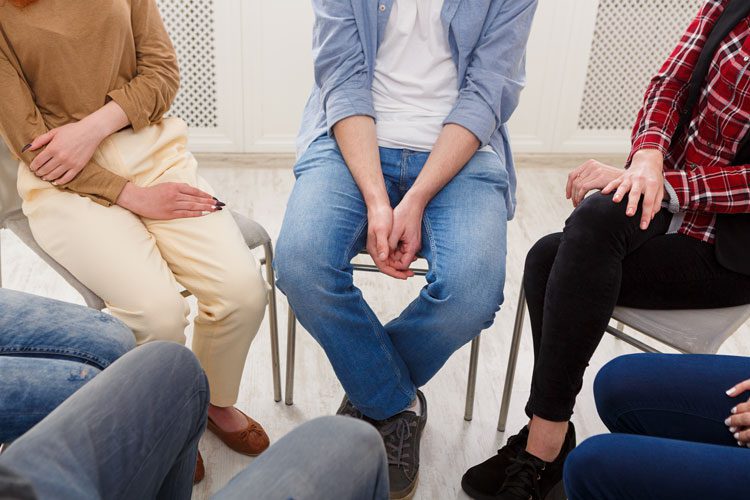Therapy is often done in an individual setting, with just the client and the counselor working together. Though this can be extremely helpful, group therapy is sometimes recommended instead or in addition to individual sessions.
Benefits of Group Therapy
The idea of sharing private information with a group of strangers can be intimidating, and it may leave a person wondering how this could possibly help with their mental health needs. But there are several benefits of group therapy:
- Combating isolation – One of the most difficult things about mental illness can be the isolation it creates for the person with the diagnosis. People with mental health conditions often feel like they are the only one facing their struggle and that even their closest friends and family members may not understand what they are going through. Group therapy helps people with mental health diagnoses see that other people have similar struggles.
- Group dynamics – Group therapy can also help a person learn how to navigate social dynamics in the outside world. While the group is overseen by a trained counselor, it may share similar elements with social interactions a person would have outside of the group. This allows group members to practice their skills in a setting where they can get helpful feedback.
- Lived experience – While the expertise of a trained counselor or a great medication prescriber can be a huge benefit to a person in mental health recovery, there is no substitute for the lived experience another person can share. Group therapy allows people to trade ideas for how they have managed their condition and to provide a different type of support than what a trained professional can offer.
What to Expect in Group Therapy
Group therapy works a little differently than individual therapy, and it can be helpful to know what to expect. The American Group Psychotherapy Association (AGPA) described group therapy in the following way:
- Sessions are typically 60-120 minutes in length
- Groups consist of 5-15 clients
- People attending the group are typically being treated for similar diagnoses
- A therapist provides leadership for the group and maintains a safe environment
- Groups could be conducted in person or virtually
- May be used in conjunction with individual therapy
Group Therapy Versus Support or Self-Help Groups
While some people do use the term interchangeably, group therapy is different from support groups or self-help groups in that the support and self-help groups are primarily focused on alleviating symptoms and may not address underlying patterns of behavior that could be contributing to issues the person is facing. Self-help and support groups also may not be facilitated by a trained therapist.
Making a Commitment
Joining a group may require a person to make a commitment to participating for a certain duration of time. Short-term groups may last 4-20 sessions. Other groups don’t have a set duration. The person participates until their needs have been met.
Open Groups Versus Closed Groups
The American Psychological Association (APA) indicates that it is important to find out if a group is open or closed. An open group allows new members to join at any time, whereas a closed group has everyone start together. Groups that follow a structured curriculum are often closed.
Small Groups Versus Large Groups
It’s not necessarily better to be in a smaller group or a larger group, as both have benefits. Small groups tend to allow more time to focus on each individual within the group, while large groups tend to draw in more diversity, allowing for a broader range of ideas and information to be exchanged among group members.
How Much to Share
While respecting the confidentiality of other participants is certainly an expectation of group therapy, there is no law that enforces confidentiality among participants. However, therapists are bound by confidentiality laws, and most group members will respect each other’s privacy. Even so, group members should use their own judgment about what they share in a session.
If you have questions about group therapy, don’t hesitate to reach out to us at Highland Hospital for more information. We offer our clients compassionate treatment for mental health diagnoses and for substance use disorder.










